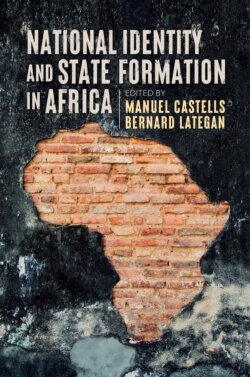Читать книгу National Identity and State Formation in Africa - Группа авторов - Страница 15
Is it time or even possible to put Rhodes to rest?
ОглавлениеAlthough he died in Cape Town, Rhodes, like many a makwerekwere I know, had left instructions to be buried at home, by which he meant, not Bishop’s Stortford in Hertfordshire, England, where he was born on 5 July 1853, but rather, Matabeleland, which he had conquered and renamed after himself, and where he had chosen a final resting place. Since 1902, Rhodes’s grave lies in the Matopos Hills of Matabeleland in Zimbabwe – ‘Where four great boulders [… keep] eternal guard upon the summit of the World’s View’ (Stent 1924: 77).
It is only when a makwerekwere succeeds in imposing him or herself as a son or daughter of the native soil, and in insisting on his or her superiority – body, mind and soul – that the locals, initially for self-preservation and subsequently as a form of social distinction, start looking up to the makwerekwere as a pacesetter worthy of imitation or mimicry. Such mimicry or imitation is practised, perfected, internalized, embodied and effortlessly reproduced and transmitted from one generation of indigenes to another, as the natural order of things.
It is this whitening up that would explain why many a black South African insist that makwerekwere is strictly employed in relation to black foreigners, whom, they would also admit, are generally less advanced than South African blacks, even when the latter have few material successes to show for themselves.
This is so reminiscent of how the Boers limited the use of Uitlanders to fellow Europeans whom they saw as being beneath them! It would thus be interesting to establish when and by what means whites in South Africa came to lose their makwerekwereness. Or, should we say their Uitlanderness?
If whiteness is primarily about power and privilege, and only coincidentally about having a white-pigmented body (even if this is where it started its journey, and remains its instinctive reference point), then it is something open to being acquired and lost to whites and blacks alike. It is hardly surprising therefore that Rhodes, in his tropical adventures, did not arrive with power and privilege in his briefcase, but acquired both through his interactions with others in what today constitutes southern Africa. Like every other makwerekwere, Rhodes needed the opportunities of the land of his adventures to activate whatever capacity for fortune, power and privilege he may have inherited.
It is the ever-diminishing circles of inclusion, or narrow nationalism, which post-apartheid South Africa inherited, ironically, from Rhodes and Kruger, which perpetuate current xenophobic attacks on Africans from North of the Limpopo in present-day South Africa. Just as in the days of Rhodes and Kruger, when not every white was white enough, in present-day South Africa, not every black victim of colonialism and apartheid is black enough. It is a case of ever-diminishing circles of inclusion, even when a shared predicament is not in question.
